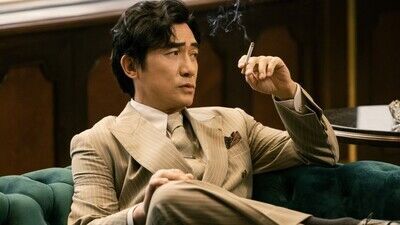Another flaw is that we never get any real sense of what is driving and motivating the two central characters beyond the most basic notions about Ching’s all-encompassing greedy mentality and Lau’s earnest determination to find justice—the kind that aren’t markedly different from what one might have found in an old Monogram Pictures programmer from the 40s about how Crime Doesn’t Pay. (In perhaps the most frustrating aspect of a film filled with such things, there is the hint at one point that Ching may only be the public face for even more powerful and shadowy interests but no sooner than it introduces that potentially tantalizing possibility, it seems to forget all about it.)
The film might have gotten away with its surface-level narrative treatment if it had at least provided us with the kind of fireworks between the two co-stars that fans of “Infernal Affairs” are clearly hoping to see but even here, it is a bit of a letdown. They only have a few scenes together and when they do share the screen, the results are negligible. Leung Chiu-wai has the showier role by far as Ching, and, while he is having fun with it, he is unable to bring anything deeper to the role. Meanwhile, Lau, in what is essentially a supporting turn, goes through his character’s familiar paces without every really hinting at what is driving him and his pursuit.
“The Goldfinger” is certainly slick and stylishly made—perhaps appropriately, considering its subject matter, it is apparently one of the most expensive Hong Kong movies ever produced—and I suppose that the story it tells might have more resonance with viewers who have a greater familiarity with the real story that supplied its inspiration. For the most part, though, it feels like a film that has already gone through the remake process, casting all the stuff that made it interesting in the first place aside and leaving only the glossy surfaces.

